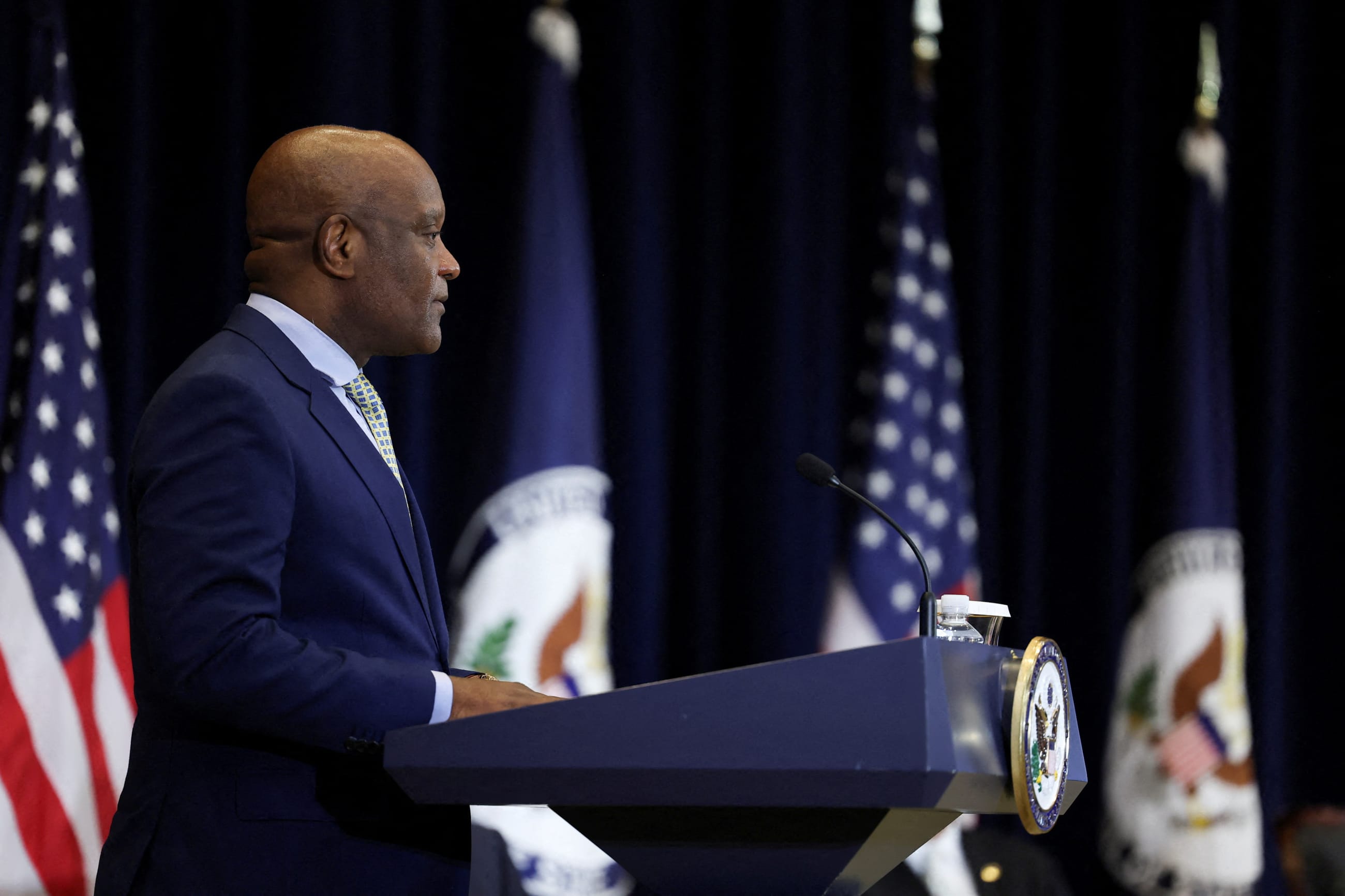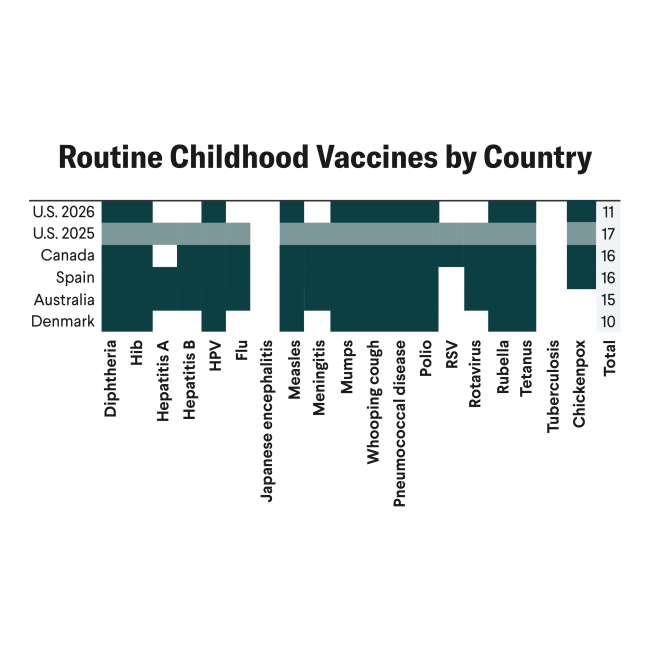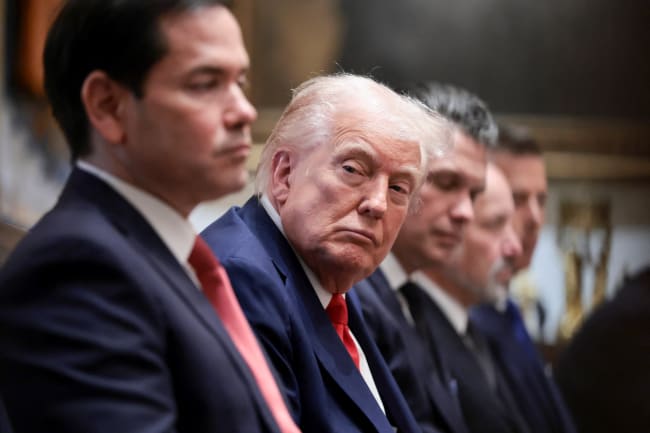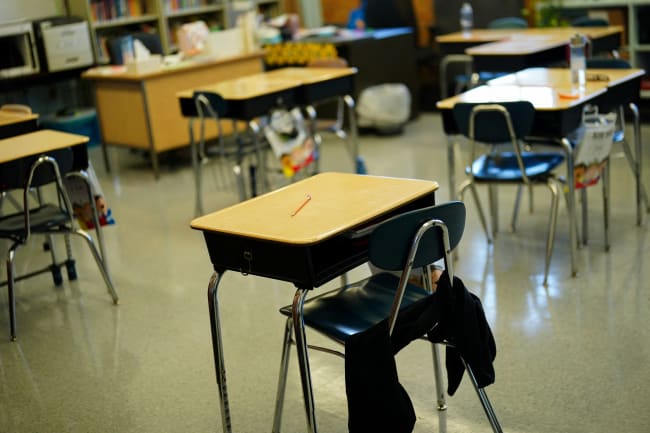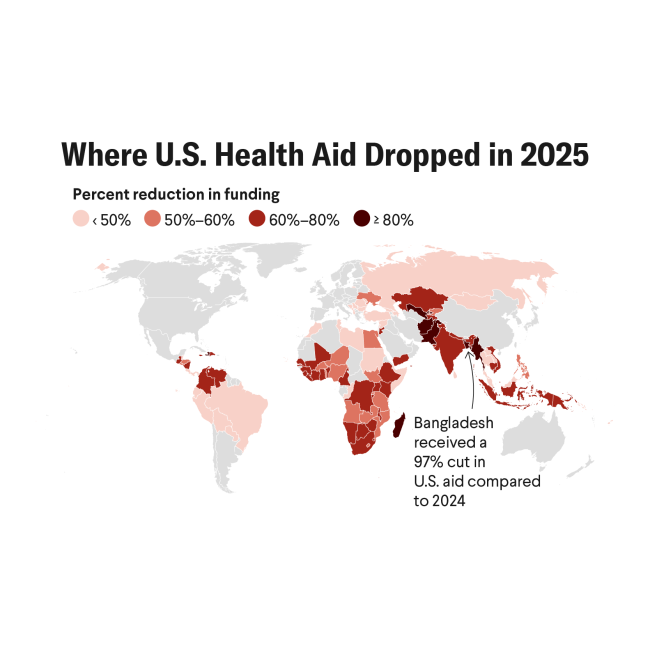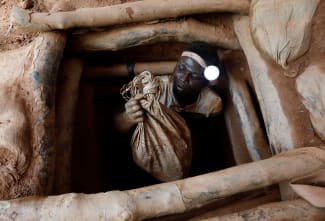On August 1, U.S. Secretary of State Antony Blinken announced the launch of a new Bureau of Global Health Security and Diplomacy. In keeping with Blinken's broader efforts to modernize the State Department, the bureau consolidates the staff and responsibilities of a handful of existing units and offices focused on health, and could elevate the importance of health in U.S. foreign affairs.
To lead the bureau, Blinken selected Ambassador-at-Large Dr. John Nkengasong, the current U.S. Global AIDS Coordinator. Think Global Health spoke with him about what the bureau means for U.S. response to global health challenges.
□ □ □ □ □ □ □ □ □ □ □ □ □ □ □
Think Global Health: What is the significance of the creation of the new bureau?
Ambassador Nkengasong: During the COVID pandemic, the world was challenged in several dimensions: our ability to coordinate, our ability to cooperate, our ability to collaborate, and our ability to communicate with clarity. This bureau really seeks to elevate global health security as national security within the State Department — to use diplomatic assets to elevate the dialogue and elevate the collaboration, cooperation across the world.
Think Global Health: This new, functional bureau holds a different place in the department's organizational chart than the former office of the U.S. Global AIDS Coordinator. What does that change on a practical level?
Ambassador Nkengasong: The State Department has what I call health assets: you had the Office of the Global AIDS Coordinator, which focuses uniquely on the HIV/AIDS pandemic. You also had [the Office of International Health and Biodefense and the Coordinator for Global COVID-19 Response and Health Security]. So this consolidates all these other units within the State Department into one bureau so that there's better leveraging, better coordination. That really is in response to the secretary's vision for a State Department that is ready to meet the challenges of the twenty-first century.
This consolidates all these other units within the State Department into one bureau so that there's better leveraging, better coordination
Ambassador John Nkengasong
Think Global Health: What are the potential benefits of bringing those assets together?
Ambassador Nkengasong: Coordination in a disease outbreak or a disease that poses a security threat is important. Second, it enables what I call leverage. For example, the HIV platform and assets that are within the State Department can easily be leveraged: if there's an outbreak in country X, we already have a platform we can use to gather information, accurate data. It also enables the bureau to promote and elevate the HIV agenda. So, it provides what I call a coordinated voice within the State Department, a unified voice.
Think Global Health: What would you explain to a new staff member joining this bureau? And is your day-to-day different now than it was before this bureau launched?
Ambassador Nkengasong: This is a truly an exciting moment for me because it shows that we are meeting the secretary's vision of modernizing the State Department and elevating global health security and making it a key instrument for foreign policy. We have a footprint at headquarters of about 350 or so. We had an all-hands meeting just this week on Monday. The excitement in the room is really apparent. Everybody is encouraged to be part of this historic moment.
Is my day different? Yes. We have to get up in the morning and think about continuing the fight against HIV, which has not gone away. We are the leading country in the fight against HIV/AIDS. Our leadership has been incredible. We need to maintain that.
I wake up every morning, including today, thinking, how do you stand up the bureau quickly? And make sure that all the operational and programmatic and logistics elements are put in place to enable the bureau to function, Including hiring new staff, putting in new logistics, going to trainings. I did one at nine o'clock myself, just to understand how the bureau functions. So having those nitty-gritties that constitute the basis of how a proper bureau functions. We just came out of a retreat last week to think through what we want to achieve in the next hundred days, and where we see ourselves in three and in five years.
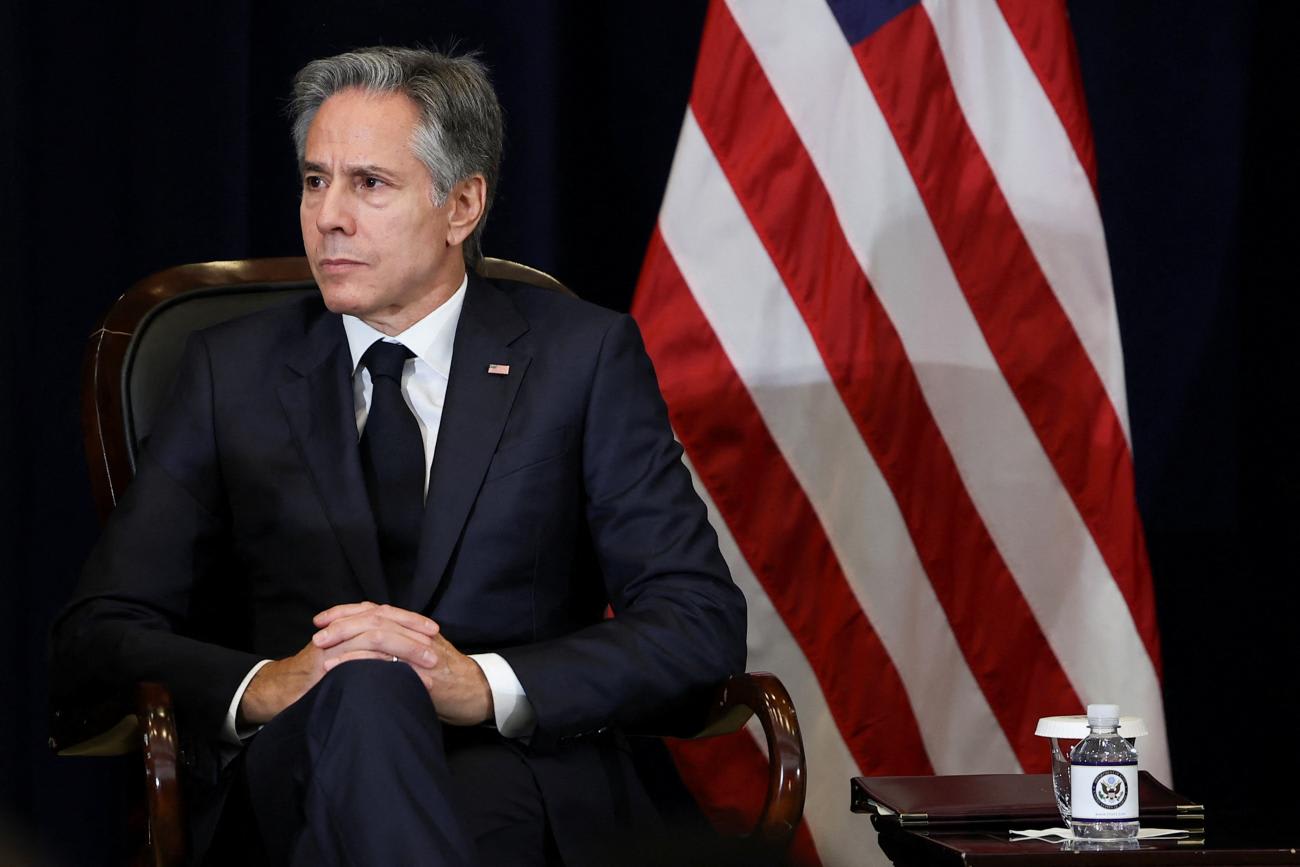
Think Global Health: What are some of the priorities that you have for the bureau that might not be on everyone's radar?
Ambassador Nkengasong: First of all, maintain the fight against HIV/AIDS. Make sure that we continue to move on that agenda, including getting PEPFAR reauthorized this year.
Second, make sure that those structures that were put in place during the COVID response, such as the Global Action Plan, which was led by Secretary Blinken and brought foreign ministers together, transitions into a group that looks not only at COVID, but also at other disease threats. We're also looking at how to engage and support the work going on around a pandemic treaty or agreement. We have a dedicated ambassador within the bureau working with the Department of Health and Human Services to do that.
We also looking at how we can work in a holistic way to promote One Health as a mechanism including climate change — finding the intersectionality between One Health, climate change, and global health security.
Think Global Health: Are there any lessons that have been learned from the Pandemic Fund's first call for proposals?
Ambassador Nkengasong: The lessons from the first proposal is what I call the prospects: it is possible to do it. We've learned what they will fund, especially in terms of those horizontal systems, and how impact will be evaluated. It is significant that in three years we were able to set up a fund that brings in many countries, were able to issue the grants, and will now focus on evaluating it, learn lessons from that, and inform the next round of grants. So, it's an exciting opportunity to strengthen horizontal systems.
We need to protect the Global Fund so that it continues to do the work that it was designed to do—responding to malaria, HIV, and tuberculosis
Think Global Health: Think Global Health ran a piece a few weeks ago in which the author described the missed opportunity for a partnership between the Global Fund and the Pandemic Fund, and was critical of the small number of African countries that received grants. Do you think those are real problems?
Ambassador Nkengasong: We need to protect the Global Fund so that it continues to do the work that it was designed to do — responding to malaria, HIV, and tuberculosis. You don't want to change the processes that are ongoing. We continue to look for opportunities for the Global Fund and Pandemic Fund to coordinate as much as possible, to exchange information, and especially learn lessons from how the Global Fund has been successful over the years.
With respect to the funding going to Africa, about 32 percent of the awarded funds went to African countries. I think that is a start. The question is how we grow the fund. Remember, our goal is to get to $10 billion a year and the current level of funding is just about $2 billion. It's an important step in the right direction but we are not yet there. We continue to hope that, as the fund grows, more resources will go to African countries.
Think Global Health: In global health, there've often been problems of siloed funding and programs. Do you think pandemic preparedness could be a new silo?
Ambassador Nkengasong: I hope not. I've always said that the best way to prepare for the unknown is to invest adequately in the knowns. The knowns are the things that threaten global health every day—that is, immunization programs, HIV programs, tuberculosis and malaria programs, and maternal/child health. If we invest in those systems, institutions, and structures adequately, then we are invariably preparing for the unknown. Because those same systems will be used in delivering services when you have a deadly disease threat.
We also have to look at what the fund can do that is different from what the medical programs are doing, such as in the areas of incentivizing what I call decentralized manufacturing. So that we can have the global health security commodities —diagnostics, therapeutics, vaccines, and personal protective equipment—distributed around the world and enable us to swiftly respond to disease outbreaks. Those are opportunities that, as the fund matures and grows, I think will need to explore that complementarity, which vertical programs are not doing but horizontal programs can fill.
Think Global Health: The relationship between the United States and China has been frosty. On the other end, the countries share a lot of interests around global health. Do you see any specific areas for collaboration?
Ambassador Nkengasong: Diseases know no borders. We need to look for all kinds of mechanisms to collaborate and coordinate our efforts, because that's the only way to contain a fast-moving disease threat—where we share data and be transparent, so that everybody can have access. That is central to a good global health response. So in the spirit of the four Cs—collaborate, coordinate, cooperate, and communicate—the bureau hopes to use those four Cs to drive the relationships, whether with China or any other country.
Think Global Health: PEPFAR has been one of the largest and most successful global health initiatives ever undertaken, but we're in a moment of transformation and risk. What steps do you think the bureau needs to take to ensure that that program continues to be successful going forward?
Ambassador Nkengasong: The bureau is going to engage extensively in the celebration of PEPFAR's twentieth anniversary this year, and has held several events, including one on February 24 in Washington, DC, when President Bush was here. Those who were here twenty years ago saw the devastating impact of HIV/AIDS in Africa and exercised historic leadership: we changed the trajectory thanks to that leadership, in a way that is profound. And the world recognized that we truly lead in global health. Twenty years down the road, we are projecting to bring HIV/AIDS to an end as a public health threat by 2030. So, we still have a long way to.
The bureau has been helping to analyze the significance of PEPFAR. It has saved twenty-five million lives across the world. It has prevented 5.5 million children from acquiring HIV/AIDS. It has established an impressive public health infrastructure in countries where we are operating. That is what the bureau is leading with: putting out facts, showing the impact, and messaging that we need to finish the fight. Because the gains we've made over the years are fragile. We currently have about twenty million people in Africa who are on life-saving treatment every day. If they stop receiving those treatment even for a week, the risk is that the virus will come back. We may find ourselves in the situation where we were twenty years ago.
Think Global Health: Domestic politics in the United States have jeopardized whether and how PEPFAR will move forward and have also affected how some people think about basic public health measures such as vaccinations. Is politics ruining global health?
Staff member: That's not one of the questions that the ambassador will address for this interview. We'd like to stay away from politics.
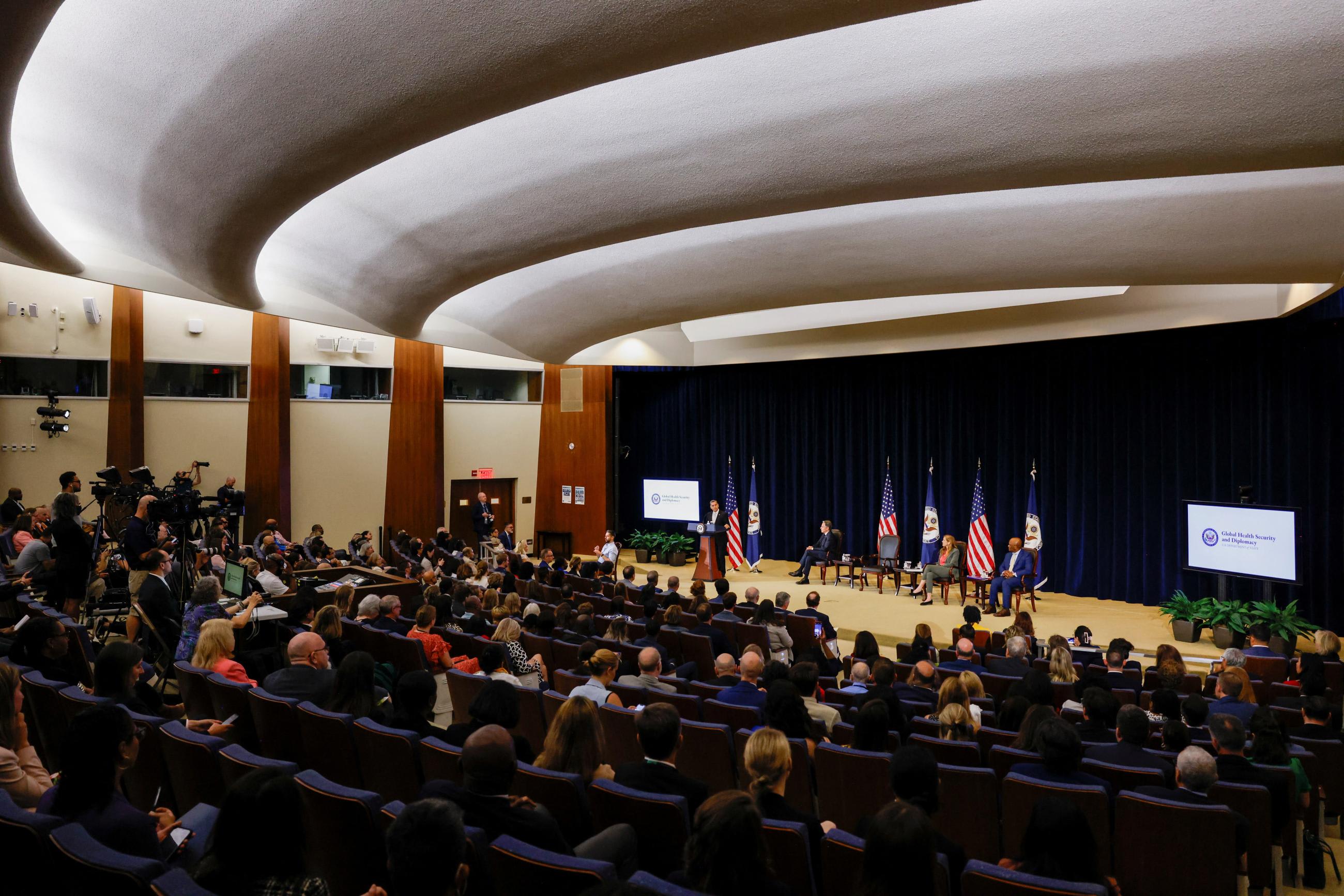
EDITOR'S NOTE: This interview was conducted via Zoom and has been edited for length and clarity.
